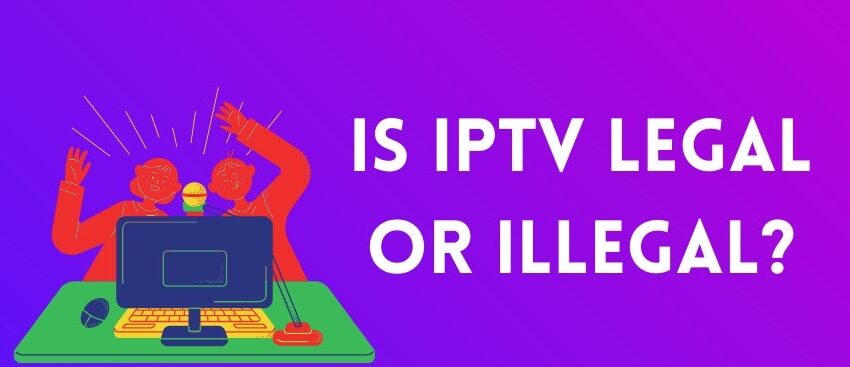Introduction
IPTV legality UK: The demand for Internet Protocol Television (IPTV) is growing significantly in the UK. More people are switching from traditional cable and satellite TV to IPTV because of its affordability, flexibility, and convenience. However, not all IPTV services operate legally. Some offer content without proper licensing, putting users at risk of legal consequences.
In the UK, copyright laws are strict, and using unauthorized IPTV services can lead to fines or legal action. According to a report by Trading Standards Scotland, many users unknowingly access illegal streams, violating UK copyright laws. Additionally, the UK government has taken strict measures to crack down on illicit IPTV services. A government response outlines the serious consequences for those providing or using unauthorized IPTV services.
With these regulations in place, understanding IPTV legality in the UK is crucial to avoiding unnecessary legal trouble. This article will explore the difference between legal and illegal IPTV services, UK copyright laws, and how you can verify whether an IPTV service is legal before subscribing.
What Is IPTV and How Does It Work?
Understanding IPTV and Its Popularity in the UK
IPTV is a modern way of delivering television content over the internet. Unlike traditional broadcasting methods such as satellite or cable, IPTV allows users to stream live TV, watch on-demand content, and access high-definition channels from multiple devices.
Different Types of IPTV Services
There are three primary categories of IPTV services available in the UK:
- Legal IPTV Services – These services have official licensing agreements with content owners and follow UK broadcasting laws. Examples include BBC iPlayer and Sky Go.
- Unauthorized IPTV Services – These platforms stream copyrighted content without obtaining proper distribution rights, making them illegal under UK law.
- Free IPTV Services – Some free IPTV services, like Pluto TV, operate legally, while others stream copyrighted content without permission.
To learn more about different types of IPTV services, check out our guide on IPTV UK On-Demand.
Laws Governing IPTV in the UK
Copyright Laws and Their Impact on IPTV
The Copyright, Designs and Patents Act 1988 protects broadcasters, content creators, and media distributors. Any IPTV service that provides copyrighted content without proper authorization is considered illegal under this law.
The Digital Economy Act 2017 and IPTV Regulations
The Digital Economy Act 2017 introduced stricter penalties for illegal streaming. Its key provisions include:
- Stronger enforcement against IPTV providers distributing copyrighted material illegally.
- Increased fines and prison sentences for individuals and businesses engaging in IPTV piracy.
- Quicker legal action against repeat offenders.
The Role of Ofcom and Other Regulatory Bodies
Several UK regulatory agencies ensure that IPTV services comply with the law:
- Ofcom – Regulates UK television services and monitors compliance with broadcasting laws.
- Federation Against Copyright Theft (FACT) – Investigates and shuts down illegal IPTV providers.
Legal IPTV vs. Illegal IPTV
What Makes an IPTV Service Legal?
A legitimate IPTV service must:
- Obtain licensing agreements with content creators.
- Charge fair subscription fees based on content rights.
- Be available through official platforms such as Google Play or Apple App Store.
How to Identify an Illegal IPTV Service
An IPTV service is likely illegal if it:
- Offers access to premium channels at unusually low prices.
- Lacks official documentation proving content rights.
- Requires side-loaded apps or unauthorized streaming devices.
The Risks of Using Illegal IPTV Services
Engaging with illegal IPTV services can have several consequences, including:
- Legal Penalties – Fines up to £5,000 or potential imprisonment for repeated offenses.
- Cybersecurity Threats – Users risk malware, phishing attacks, and data theft from insecure streaming platforms.
- Unreliable Service – Illegal providers often get shut down, leaving users without access to paid subscriptions.
For additional insights into avoiding illegal IPTV providers, read our guide on The Ultimate Guide to Choosing an IPTV UK Provider in 2025.
Case Studies and Legal Precedents
Major IPTV Legal Cases in the UK
The UK has cracked down on illegal IPTV operations, setting legal precedents for future cases:
- In 2016, Terry O’Reilly and Will O’Leary were fined £250,000 for selling illegal IPTV boxes.
- In 2018, Jon Haggerty was sentenced to five years in prison for running an unlicensed streaming service.
How These Cases Impact the IPTV Industry
These legal actions serve as a warning to IPTV providers and users. They reinforce the UK’s commitment to enforcing copyright laws while protecting legitimate streaming services.
How to Ensure Your IPTV Service Is Legal
Verifying Licensing Information
Before subscribing to an IPTV service, check:
- If the provider is registered with Ofcom.
- Whether the service has official content licensing from networks and broadcasters.
Recognizing Red Flags of Illegal IPTV Providers
Avoid IPTV providers that:
- Only accept cryptocurrency payments (often a sign of illegal operations).
- Have no customer support or verified contact information.
- Are not listed on official app stores like Google Play.
To find a reliable IPTV provider, read our guide on How to Protect Your IPTV Subscription from Fraud.
Penalties for Using Illegal IPTV in the UK
Legal Consequences for Users
Both IPTV providers and users can face legal repercussions. Possible penalties include:
- Fines up to £5,000 for streaming copyrighted content illegally.
- A criminal record for repeat offenders.
- Potential internet service bans imposed by broadband providers.
The Broader Impact on the Entertainment Industry
Illegal IPTV services reduce revenue for content creators and legal providers, forcing higher subscription prices for law-abiding users. Additionally, they often serve as a gateway for cybercrime, exposing users to financial fraud and identity theft.
The Future of IPTV Legality in the UK
Upcoming Changes in IPTV Regulations
- Stronger legal action against IPTV piracy is expected.
- ISPs may be required to block illegal IPTV services more efficiently.
- New technologies could enhance copyright protection and anti-piracy enforcement.
Technological Solutions to Prevent IPTV Piracy
- AI-powered monitoring will detect illegal IPTV streams faster.
- Digital fingerprinting will help identify and block unauthorized content.
- Better encryption will protect licensed IPTV providers.
Frequently Asked Questions (FAQs) About IPTV legality UK
Is Watching IPTV Illegal in the UK?
Not all IPTV services are illegal. BBC iPlayer and Sky Go are legal. However, using an unlicensed IPTV provider to access copyrighted content is illegal.
What Happens if You Use an Illegal IPTV Service?
Users can face fines of up to £5,000, loss of internet access, or even criminal charges.
How Can You Tell If an IPTV Service Is Legal?
A legal IPTV service will have proper licensing agreements, fair pricing, and be available on official app stores.
Conclusion
IPTV Laws in the UK Are Getting Stricter
IPTV is becoming a major part of entertainment in the UK, but the legal landscape is changing fast. Authorities are tightening regulations to crack down on illegal IPTV providers and protect copyright holders. New laws and enforcement actions are making it harder for unlicensed services to operate. With heavier fines, quicker website shutdowns, and advanced tracking technologies, illegal IPTV is becoming a bigger risk for both providers and users. The UK government continues to introduce stronger penalties to deter piracy and protect legitimate streaming services.
Legal IPTV Services Offer a Safer Experience
Choosing licensed IPTV services is the best way to enjoy high-quality entertainment without legal risks. Legal providers ensure secure payment methods, reliable streaming, and proper content rights. Subscribing to services like BBC iPlayer, Sky Go, or NOW TV means users can stream without worrying about shutdowns or unexpected legal trouble. More platforms are offering affordable packages, making legal IPTV a convenient and safe choice. With faster internet speeds, improved streaming quality, and better customer support, licensed IPTV providers continue to improve the viewing experience for UK users.
IPTV legality UK Is Not Worth the Risk
Using unlicensed IPTV services may seem like an easy way to access premium content for less money, but the risks far outweigh the benefits. Many illegal services steal user data, contain malware, or stop working without warning. In many cases, users who subscribe to these services lose their money when platforms disappear overnight. Worse, some illegal IPTV services are linked to cybercrime and fraud, putting personal and financial information at risk. The UK government actively tracks and prosecutes those involved in illegal IPTV, meaning users could face fines or criminal charges.
Choose Legal IPTV legality UK for a Secure Future
As IPTV technology advances, legal options will continue to expand, offering users more variety and convenience. Government enforcement will make illegal IPTV less accessible, pushing more people toward legitimate services. To stay on the right side of the law, always check if an IPTV provider has proper licensing and a trustworthy reputation. If a deal seems too good to be true, it likely is. Choosing legal IPTV services ensures not only better quality and security but also supports the entertainment industry and content creators. The future of IPTV in the UK is promising, but only for those who follow the law.

